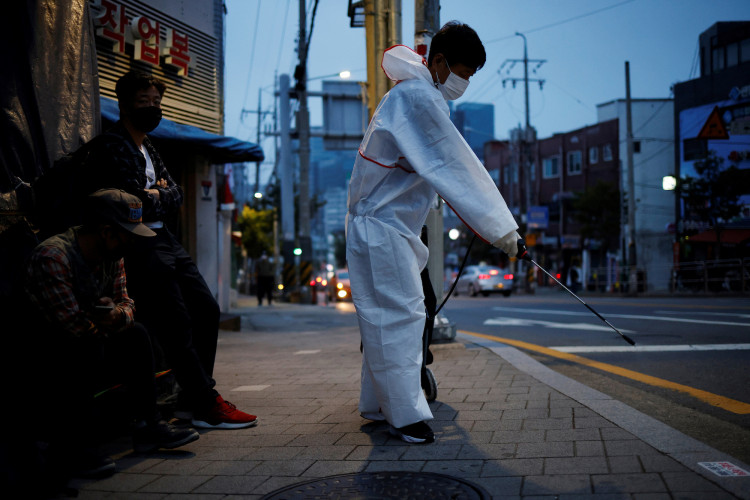Both South Korea and Japan have called in their militaries to help prevent almost historic surges in new COVID-19 infections from gaining even more ground and overwhelming their already hard-pressed health care systems.
Japan Monday raised its COVID-19 alert to stage four, the highest level, as it battles a surging third wave of infections. Stage four warns people the coronavirus is rapidly spreading throughout the country.
Japan's debilitating shortage of medical personnel has meant health facilities can't keep-up with trace and cluster testing amid the unexpectedly swift increase in COVID-19 cases. Especially hard hit by the surge are Japan's senior citizens over 65 that comprise a third of its population.
Elderly Japanese with underlying health conditions such as heart disease, diabetes and high blood pressure account for 90% of those critically ill with COVID-19 in virus hot spots such as Sapporo in Hokkaido, Tokyo, Aichi prefecture and Osaka prefecture.
The Ministry of Health, Labor and Welfare revealed 386 hospital-acquired infections nationwide and 452 infections at long-term care facilities, making both locations the major sources of cluster outbreaks. Some Japanese are blaming the government's "Go To Travel" domestic tourism discount campaign launched in July for the explosion of cases in Sapporo, Tokyo, Osaka and the central Chubu region.
These widespread challenges have forced the government to ask the Japan Self-Defense Forces to deploy army nurses to assist overburdened local hospitals in Osaka and Hokkaido prefectures.
Worldwide, Japan is the 45th most coronavirus infected country, based on Worldometer data. As of Monday, it had to contend with 164,000 total confirmed cases and more than 2,390 deaths since the pandemic began. It reported some 1,500 new cases Monday, as well as over 20 deaths.
Since mid-November, South Korea has been battling a third infection wave harder to link to any specific event and thus harder to control. In contrast, the country's first and second waves in late February and August were driven by churchgoers, religious leaders and far right protesters railing against mask wearing and social distancing.
New cases reported Monday exceeded 600 for the second straight day, bringing the national total to more than 38,000 with about 550 deaths. All except 28 of all new cases Monday were local transmissions almost impossible to trace.
The country's total cases stood at 38,755 as of Monday, including 552 deaths. South Korea is the 94th most infected country in the world, which has 67.8 million total cases and 1.5 million deaths.
"The capital area is now a COVID-19 war zone," said Health Minister Park Neung-hoo Monday.
Seoul and its suburbs account for half the country's population, and most of the third wave infections. As might be expected, the country's medical system is showing signs of bending under the strain. The ministry reported only 55 ICU beds available nationwide.
The government of president Moon Jae-in is responding by raising social distancing measures to the second-highest level in greater Seoul, and to the third-highest level in the rest of South Korea.
In the greater Seoul area, gatherings of more than 50 people will be banned. Public transportation will be reduced after 9 p.m., and nightclubs and gyms closed.
The government has ordered the Republic of Korea Armed Forces and police to help with contact tracing.






